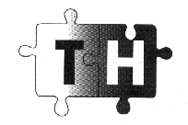Resolving in-house disputes and converting differences into productivity
The employment relationship hinges on the maintenance of a situation of commitment and trust between the organisation and an employee. This situation relates closely to the expectations and mutual reliance between the parties so that an individual contributes to a well performed job by applying the requisite skills and effort with appropriate conduct and behaviour. However, on occasions, this state of harmony and equilibrium is disturbed and may affect the employment relationship and the work organisation. The disturbance may be caused by a breach of discipline or by a complaint made by an employee or group of employees which needs to be addressed and resolved. This may involve the activation of a disciplinary and grievance procedure.
In some situations which may include complaints about payments, on discrimination the procedures may have to have recourse to alternative dispute resolution processes of mediation and arbitration in order to lead to an appropriate outcome. Account also needs to be taken of the current statutory dispute procedures.
Alternatively, there may be situations where divisional loyalties and harmonies that are essential to effective operations and success of an organisation, that are interfering with cross-functional work. Alternative dispute resolutions (ADR) techniques may be uses as an opportunity for organisational growth and change.
1 Procedures – review and design
We can carry out a review of current arrangements and ensure well thought out and clearly worded procedures provide for effective management and fast resolution of problems as well as meeting legal requirements. Training workshops for line managers can be arranged.
- Disciplinary Procedure: The disciplinary procedure is a management decision making process that needs to be consistent with fairness and natural justice and a proper appeals procedure.
- Grievance Procedure: A grievance procedure provides for an individual to raise a complaint which requires to be settled by agreement.
- Conciliation Procedure: To address collective issues and may need to be incorporated in the appropriate procedural or recognition agreement with a recognised trade union.
2 Provision of three alternative dispute resolution techniques
These three techniques maintain the advantage of giving the organisation control over the outcome of disputes that is sacrificed if external litigation ensues. Because management have a stake in hoe in-house conflicts are resolved, having control may sometimes be more important to a manager than helping parties to work out issues on their own. Evidence has shown that the more control parties perceive themselves to have over a decision-making process, the fairer they view the process and the more willing they are to accept and abide by the decision.
(A) Mediation: We can provide a mediator as a neutral third party who will help conflicting parties reach a voluntary agreement. The goal of the mediator will be to build concensus around a mutually beneficial solution. Rather than impose solutions, the mediator will encourage both parties to explore interest and concerns that underlie their positions.
(B) Arbitration: Our arbitrator will listen to each side of the conflict and then unilaterally decide and announce a binding outcome.
(C) “Med-Arb”: When managing conflict among subordinates, managers have the authority, to a large extent, to impose solutions. However, long-term success may rest upon the ability to help others work together to resolve issues. Med-Arb (mediation and arbitration) may be the best approach to tackling workplace conflict. In Med-Arb we begin by acting as a mediator who helps disputants co-operate on a solution. If mediation fails, we, as the third party, shift to the role of arbitrator to impose a decision.
[Note that where a follow-up support is required, counseling support can be arranged.]
3 Record of achievement
We are regularly engaged by firms to review and recommend appropriate action on employee relations issues, involving every aspect of the employment relationship whether contentious or non-contentious.
4 Service arrangements
We have a flexible approach to charging rates and are happy to quote fixed prices as well as daily or hourly rates.
